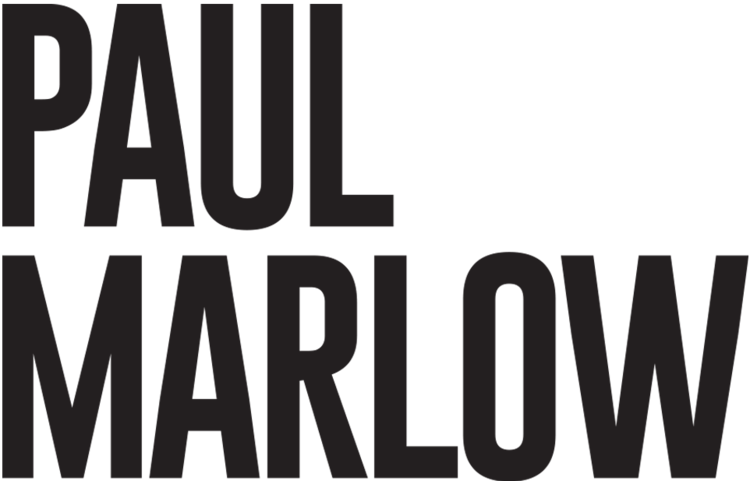In the painting A Big OK …from U.S.A., my aim was to portray the beautiful solitude and loneliness of an American city street at dawn—and create an unfolding narrative. The light in this work gives the scene an underlying sense of drama.
A Big OK …from U.S.A. 2021. Acrylic on canvas. 24 in. x 36 in.
There was a time in America when everything ‘new’ was better, and anything ‘old’ was cast aside. However, thanks to some folks in the NewBo district in Cedar Rapids, Iowa, a few old things are being saved and lovingly restored, such as this classic Art Deco gas station, at the corner of 3rd St. and 16th Ave. SW.
Is there a bit of waxing nostalgia going on here? Of course. I grew up a few blocks away from a Skelly station very much like this one, in Center Point, Iowa. As a boy, my friends and I would ride our bikes down Washington Street, past the L.J. Dennis & Son grain elevator and the old railroad depot, down to Rhinehart's Skelly for a 16 oz. glass bottle of ice-cold RC Cola, Dr. Pepper or Orange Crush. We may have even quaffed a Pepsi or two, (not really wanting to share, for fear of backwash). A big bottle of pop was like liquid nirvana on a dusty summer day, for a mere 35 cents. I wonder how many kids rode their bikes to this station over the years, to do the very same thing.
Close up of A Big OK …from USA
This subject might fit the same genre of work created by American Realist painter Edward Hopper. One of Hopper’s better-known works, Gas, was probably in the back of my mind when I came up with the idea to paint this subject. I took the reference photo on an early Sunday morning—6:54 am, March 21, 2021 to be exact—while standing on the tailgate of my SUV to get a better perspective.
Edward Hopper. Gas, 1940. Oil on canvas 26 1/4 in. x 40 1/4 in.
Hopper painted Gas during the summer of 1940, which he spent in Truro, Massachusetts with his wife, Jo. The station in Gas is not an actual location, but an amalgamation of several different gas stations. Although a realist painter, Hopper brilliantly simplified shapes and details. He effectively uses light, shadow, and saturated color to heighten contrast and create mood. In Gas, a strip of forest stretches across the scene from left to right, becoming darker with the road that disappears into total darkness. This creates a feeling of mystery and uncertainty.
“Not living in the past, but remembering our past, can give us inspiration and hope for the future.”
In A Big OK …From U.S.A., the streets also disappear behind buildings, but into the light, not darkness.
Note the long shadows, and the morning light shining through two windows, lightly falling on the pavement in the foreground. The reason I signed this painting in the lower left, instead of the lower right, is because I love the light and shadows so much, I didn’t want to ruin them with my signature.
Also, something interesting is happening with the reflections in the garage door windows as well. A slight concavity in the glass is causing the reflection to flip, so that the image of the red light pole next to the gas pump appears inverted.
Inverted reflections in the garage door windows.
Nostalgia that comes with a warning
The work has an Edward Hopper-inspired love of light, with a nod to our current cultural obsession with nostalgia and fondness for “the good ol’ days”. However, this is not a serene scene. A dramatic sky belies the sense that all is well in America. Dark clouds suggest that trouble may be on the horizon. The hill between the Skelly and stop signs? That’s the city’s old landfill, known as ‘Mt. Trashmore’. A Thomas Kinkade-invented world of idealized perfection, this is not.
Unlike Hopper, who painted exclusively in oils and watercolors, A Big OK …from U.S.A. is painted in acrylics. I pushed the acrylics like oils, using layers and glazing techniques to get the desired effect. Also, unlike Hopper’s Gas, this work has no human subject. The gas pump and slender light pole are the heroes, and symbolizing America, still gleaming before the maelstrom begins.
The old Pepsi-Cola mural, which adorns the northwest-facing wall of Tornado's Grub & Pub, is a replica of an actual Pepsi sign from the 1930s. The folks at Tornado's stayed pretty true to the original Pepsi art, though they changed the words on the mural’s callout from “Bigger Better” to “Great Burgers.” Though I have not tried the burgers at Tornado’s, and cannot vouch for their greatness, I’m willing to cut Tornado’s some slack, because it’s still a cool mural.
All of these elements—the Pepsi mural, the gas pump, the inverted reflections, the concealed light source and dramatic sky—help to create an unfolding narrative. The iconic gas station, isolated and stylized, is recast into an evocative symbol that takes us back to the roots of mythic America and away from 21st-century, here-today-gone-tomorrow culture.
The subtext of A Big OK …from U.S.A. is this: During challenging times, we often go back in time, to seek the familiarity of happier days. Not living in the past, but remembering our past, especially when things are not O.K., can give us inspiration and hope for the future.
The original, early 20th century Pepsi sign, and inspiration for the painting’s title. “Bigger Better” referred to a 12 ounce bottle of Pepsi Cola, vs. a 6.5 oz bottle of Coca-Cola, both 5¢ at the time.





